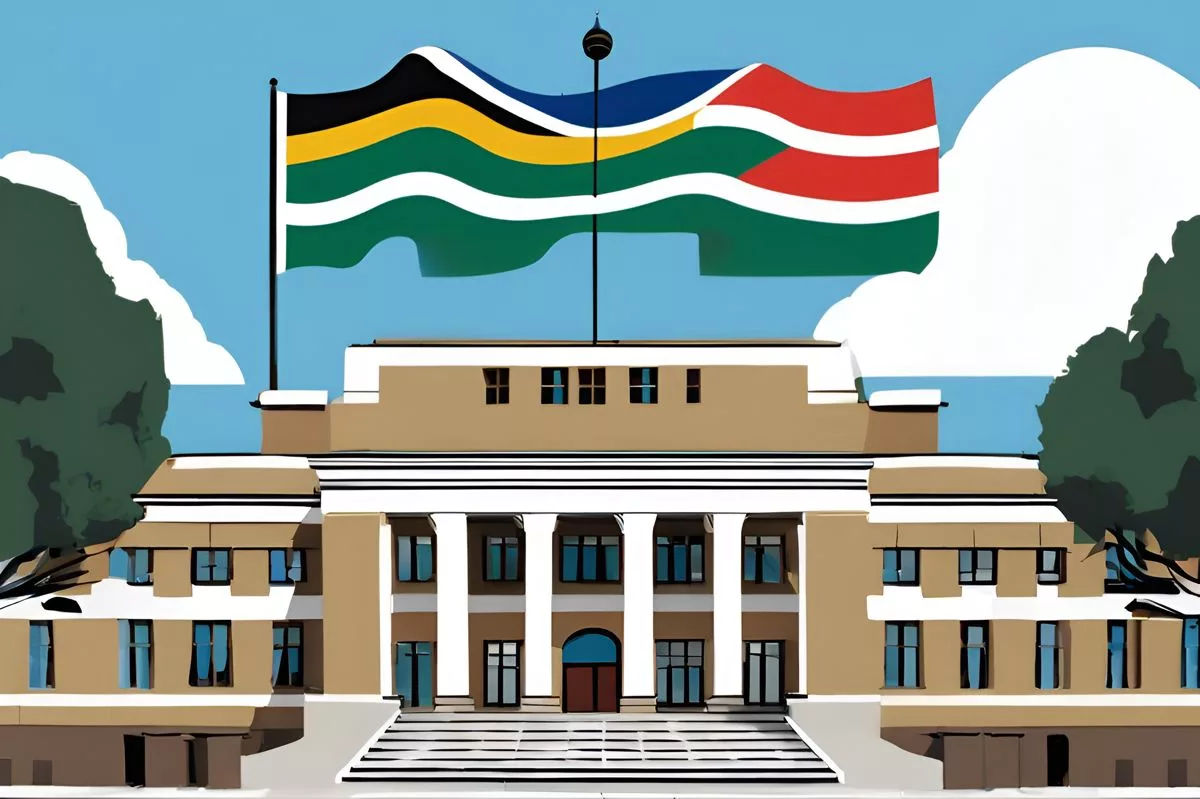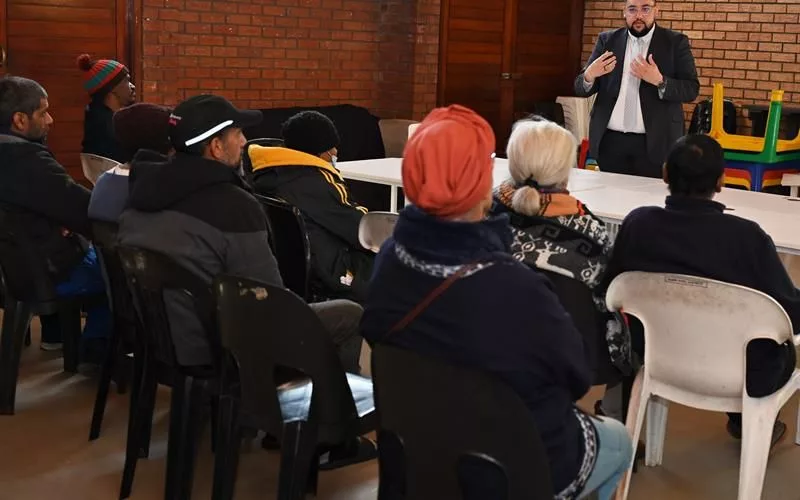The South African Parliament is a bustling center for political, socio-economic, and legislative activities. It showcases the nation’s pledge to responsibility, transparency, and public participation in democracy. This week’s agenda includes a presidential session, committee meetings, and strategic planning sessions, highlighting the Parliament’s dedication to shaping the country’s policies and strategies. The Parliament is also committed to educating citizens about their rights and privileges and recognizing members who serve their nation.
What is the South African Parliament and what does it do?
The South African Parliament serves as the center of the country’s political, socio-economic, and legislative activities. Its busy schedule includes committee meetings, strategic planning sessions, and presidential sessions that address nationally significant topics such as poverty, joblessness, and business extortion. Parliament is also dedicated to educating citizens about their rights and privileges, showcasing members who serve their nation.
The South African Parliament buzzes as a lively arena for national discourse, policy-making, and decision-making. Symbolizing the roots of South African democracy, its actions show the nation’s pledge to responsibility, transparency, and public participation. The Parliament’s busy schedule this week reflects its crucial function as the center of the country’s political, socio-economic, and legislative activities.
The Presidential Session: A Dive into National Topics
The key driver of this week’s agenda is President Cyril Ramaphosa, set to address the National Council of Provinces’ (NCOP) delegates come Thursday. The President will explore a variety of nationally significant topics, including government plans to tackle poverty and joblessness, the ratification of the Health Compact Bill, and steps to curb business extortion – a vital concern in South Africa’s economic scene.
Besides the presidential gathering, the NCOP has scheduled a ministerial briefing on Tuesday, designed to illuminate the hurdles obstructing infrastructure provision to local communities. Simultaneously, the National Assembly (NA) will hold a hybrid meeting to contemplate the draft notice and schedule, which will set the annual pay, allowances, and benefits for members of the Commission for Gender Equality.
Committee Meetings: Broad Discussions and Policy Shaping
The weekly timetable also includes nearly twenty-six committee sessions from both Houses. These gatherings will serve as a stage for thorough discussions on a multitude of subjects, assisting in molding the nation’s policies and strategies. For example, the Portfolio Committee on Basic Education will address progress in curtailing school-linked gender-based violence and fostering gender-aware classroom environments.
Simultaneously, the Portfolio Committee on Mineral and Petroleum Resources will receive a briefing from the minister on the repercussions of Total Energies’ withdrawal from offshore blocks. The Department of Higher Education and Training and the National Student Financial Aid Scheme (NSFAS) will update the Standing Committee on Appropriations on the Scheme’s present challenges.
Strategic Planning Session: Setting Goals for the Future
In the whirlwind of committee sessions, the NA will conduct a two-day strategic planning meeting on Thursday and Friday. This gathering exemplifies the NA’s dedication to proactive planning, as it will establish the goals and objectives for the 7th term of Parliament.
The Parliament’s activities extend to briefing sessions from various commissions and departments. The Commission for Gender Equality will update the Portfolio Committee on Higher Education and Training on the status of gender transformation at tertiary institutions. The National Treasury is due to update the Standing Committee on Appropriations on the First Quarter Report for the 2024/25 fiscal year.
Citizen Education and Recognition: Honoring Rights and Contributions
Parliament’s activities extend beyond pure legislative and executive matters. The South African Parliament is profoundly dedicated to educating its citizens about their privileges and rights. The Parliament is keen to remind its populace about their constitutionally guaranteed right to gather, demonstrate, picket, and submit petitions – a right safeguarded in the country’s Bill of Rights.
The Parliamentary sessions also showcase members who diligently serve their nation. A member worth mentioning is Ms. Lilian Managa from the Economic Freedom Fighters recognized for her valuable contributions.
Closing Thoughts: Role of Parliament in Shaping South Africa
In conclusion, the Parliament’s agenda for the week mirrors its function as the melting pot where South Africa’s present and future are continually being molded. It is a tribute to the commitment of those working relentlessly to keep South Africa’s progress on the right path. It epitomizes democratic values, where every voice counts, and every decision affects the nation’s future.
1. What is the South African Parliament and what does it do?
The South African Parliament is the center of the country’s political, socio-economic, and legislative activities. It holds committee meetings, strategic planning sessions, and presidential sessions that address nationally significant topics such as poverty, joblessness, and business extortion. It is also dedicated to educating citizens about their rights and privileges and recognizing members who serve their nation.
2. What is the Presidential Session, and what topics will be covered this week?
The Presidential Session is a gathering where President Cyril Ramaphosa will address the National Council of Provinces’ (NCOP) delegates. The President will explore a variety of nationally significant topics, including government plans to tackle poverty and joblessness, the ratification of the Health Compact Bill, and steps to curb business extortion in South Africa’s economic scene.
3. What are Committee Meetings, and what topics will be discussed this week?
Committee Meetings serve as a stage for thorough discussions on a multitude of subjects and assist in molding the nation’s policies and strategies. This week includes nearly twenty-six committee sessions from both Houses. For example, the Portfolio Committee on Basic Education will address progress in curtailing school-linked gender-based violence and fostering gender-aware classroom environments.
4. What is the Strategic Planning Session, and what will it accomplish?
The Strategic Planning Session is a two-day meeting where the National Assembly plans and establishes the goals and objectives for the 7th term of Parliament. It exemplifies the NA’s dedication to proactive planning.
5. What is the role of Parliament in educating citizens and recognizing members?
The South African Parliament is dedicated to educating its citizens about their privileges and rights. The Parliament reminds its populace about their constitutionally guaranteed right to gather, demonstrate, picket, and submit petitions – a right safeguarded in the country’s Bill of Rights. The Parliamentary sessions also recognize members who diligently serve their nation, such as Ms. Lilian Managa from the Economic Freedom Fighters, who was recognized for her valuable contributions.
6. What is the significance of Parliament in shaping South Africa’s present and future?
The Parliament’s agenda for the week mirrors its function as the melting pot where South Africa’s present and future are continually being molded. It is a tribute to the commitment of those working relentlessly to keep South Africa’s progress on the right path. It epitomizes democratic values, where every voice counts, and every decision affects the nation’s future.












